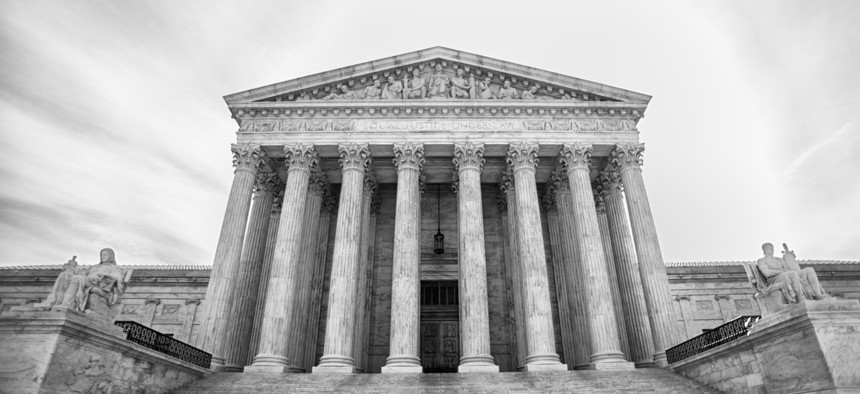
Shutterstock.com
Trump Administration Urges Supreme Court to Maintain Strict Burden in Age Discrimination Cases
The case, involving a VA pharmacist who claims the department discriminated against her based on age and gender, has implications for the entire federal workforce.
In January 2020, the Supreme Court will hear oral arguments in a case that could make it easier for federal employees to prove they were discriminated against on the basis of age in some federal lawsuits. But the Trump administration last week said such a change would set up an unfair two-tiered system with different standards between the federal and private sectors.
Nonetheless, attorneys representing a Veterans Affairs Department employee argue that’s precisely what Congress intended when it passed the Age Discrimination in Employment Act.
Earlier this year, the Supreme Court agreed to hear arguments in Babb v. Wilkie, a case that questions whether federal courts should apply the so-called “but-for cause” standard in age discrimination lawsuits involving federal workers. Currently, some courts apply the same standard for both federal agencies and private sector employers: that age discrimination must be the proximate cause of an adverse personnel action against the plaintiff.
Attorneys for Noris Babb, a VA pharmacist who claimed the department discriminated against her based on her age and gender and retaliated against her after she filed an Equal Employment Opportunity Commission complaint, said federal courts should not apply the “but-for cause” standard, because the Age Discrimination in Employment Act uses stronger language in its provisions prohibiting discrimination at federal agencies.
At issue is the provision of the law that states federal employees “shall be made free from any discrimination” based on age, a phrase that does not exist in the part of the law governing private sector employers. The EEOC, the Merit Systems Protections Board and the U.S. Court of Appeals for the D.C. Circuit have adopted a weaker burden of proof, but other federal circuits continue to apply the same “but-for cause” standard to both private sector companies and federal agencies.
In a brief filed last week, the Trump administration said a different phrase used in ADEA should control the burden required of plaintiffs: “based on.”
“The ADEA’s federal-sector provision requires that federal personnel actions ‘shall be made free from any discrimination based on age,’ and this court has repeatedly held that the phrase ‘based on’ is causal language that adopts the default common-law rule of but-for causation,” the Justice Department wrote. “That straight-forward textual analysis resolves this case: federal employees—like state- and local-government employees and private employees—can recover for age discrimination only if their age was dispositive to the personnel action at issue.”
The administration argued that Babb’s lawyers’ focus on the phrase “shall be made free from any discrimination” is misguided, because it does not overrule the causal standard created by “based on.”
“Petitioner focuses on the words ‘shall be made free from any,’” the government wrote. “That language undoubtedly eliminates something in federal-sector personnel actions, but the key question is what . . . The phrase simply indicates that personnel actions must be made without ‘discrimination based on age.’ It does not change the causation standard.”
The Supreme Court will hear arguments in the case on Jan. 15.







